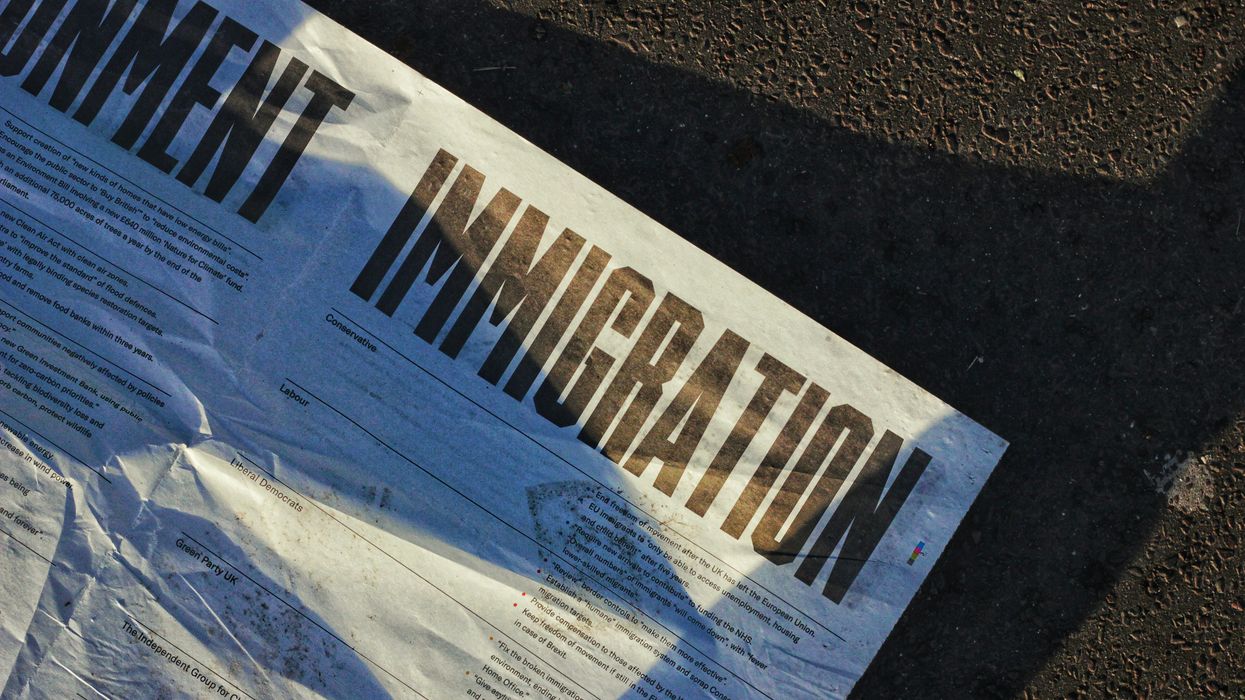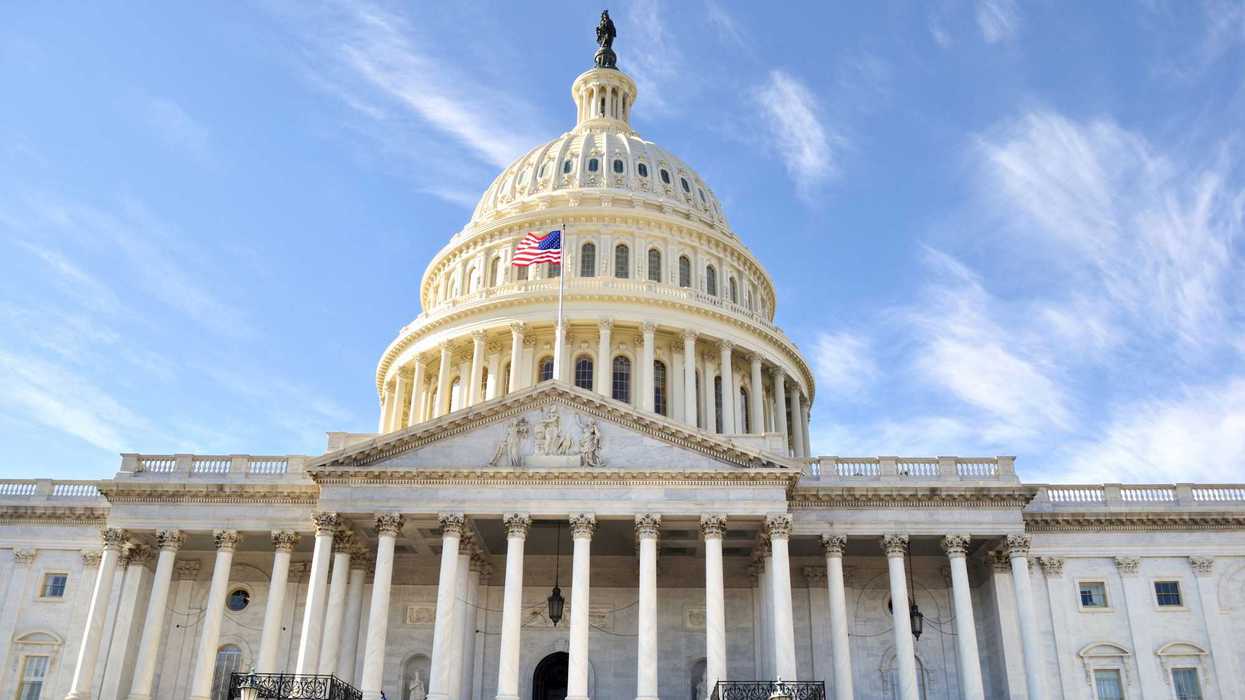The Fulcrum strives to approach news stories with an open mind and skepticism, striving to present our readers with a broad spectrum of viewpoints through diligent research and critical thinking. As best we can, remove personal bias from our reporting and seek a variety of perspectives in both our news gathering and selection of opinion pieces.For too long, our national discourse has been mired in partisan vitriol and performative outrage—drowning out the collaborative thinking, deliberative dialogue, and pragmatic problem-solving that democracy requires to thrive. This column offers a clear-eyed look at where we stand: the legislative landscape, the historical context, and the civic crossroads we now face. If we are to move forward as a nation, we must replace division with deliberation and rhetoric with results.
It's time for Congress to confront the issue of immigration not with slogans and soundbites, but with the seriousness it demands.
America’s immigration debate is at a breaking point, and the stakes couldn’t be higher. Decades of dysfunction have left us with a system that fails both undocumented workers seeking legal status and communities demanding secure borders.
The time for partisan posturing is over. What we need now is a fair and enforceable path to citizenship, paired with smart, humane border security and a national conversation rooted in facts, not fear.
Decades of dysfunction demand a new approach. Here’s what current legislation, historical precedent, and policy shifts reveal about America’s immigration future.
Congress Bills In Process
The Dignity Act (2025)
- Sponsor: Rep. María Elvira Salazar (R-FL)
- Status: Introduced, facing an uphill battle in Congress
- Key Provisions:
- Establishes a seven-year “Dignity Program” allowing undocumented immigrants to earn legal status if they pay restitution, pass background checks, and work legally.
- After completing the program, participants may enter a “Redemption Program” to apply for permanent residency (green card).
- Includes border security measures and mandatory E-Verify for employers.
- Amnesty-like Element: Offers a path to legal status without immediate deportation, but not a six-month green card application window.
Renewing Immigration Provisions of the Immigration Act of 1929
- Sponsor: Sen. Alex Padilla (D-CA)
- Status: Pending, introduced July 2025
- Key Provisions:
- Updates the “Registry” date to allow immigrants who have lived in the U.S. for at least seven years to apply for a green card.
- Applies to Dreamers, TPS holders, essential workers, and others without criminal records.
- Amnesty-like Element: Grants legal status based on long-term residence, but no fixed six-month application window.
Failed: Bipartisan Border Security and Aid Package (2024)
- Status: Collapsed in Senate vote, February 2024
- Key Provisions:
- Tied immigration reform to emergency aid for Ukraine and Israel.
- Included expanded deportation powers and detention capacity.
- No direct amnesty, but was mischaracterized by opponents as allowing “5,000 illegal immigrants per day.”
- Why It Failed: Political pressure, especially from former President Trump, led Republicans to withdraw support.
Additional 2025 Legislative and Policy Developments
The “One Big Beautiful Bill Act” (OBBBA)
- Signed into law on July 4, 2025, this sweeping enforcement-first legislation dramatically reshapes immigration policy.
- Key Provisions:
- $45 billion allocated for immigration detention facilities through 2029.
- $46 billion for border wall expansion along the U.S.–Mexico border.
- Repeals the Flores Settlement Agreement, allowing indefinite detention of families and children.
- Introduces new application fees and benefit restrictions for immigrants seeking legal status.
- Impact: Critics warn of humanitarian consequences and erosion of due process.
TPS Revocation for Hondurans and Nicaraguans
- Effective September 2025, the Biden administration has ended Temporary Protected Status for over 70,000 individuals, raising urgent questions about deportation policy and humanitarian protections.
USCIS Marriage-Based Green Card Reforms
- Updated forms and scrutiny procedures rolled out in spring 2025.
- Stricter fraud detection protocols now apply to marriage-based green card applications.
Extra H-2B Visas for Temporary Workers
- In response to labor shortages, Congress approved additional H-2B visas, reflecting bipartisan concern over workforce gaps.
Historical Perspective:
Immigration Reform and Control Act (IRCA) of 1986
- Status: Passed
- Key Provisions:
- Granted amnesty to undocumented immigrants who had lived in the U.S. since before 1982.
- Required proof of residence and good moral character.
- Provided temporary legal status, followed by green card eligibility after 18 months.
- Amnesty Element: This remains the closest historical precedent to a broad legalization program, combining enforcement with earned legal status.
Gang of Eight Framework (2013)
- Status: Passed Senate, stalled in House
- Key Provisions:
- Created a 13-year pathway to citizenship for undocumented immigrants, contingent on border security benchmarks.
- Expanded employment-based and family-based visa programs, including provisions for agricultural workers and DREAMers.
- Mandated E-Verify for employers and enhanced visa tracking systems.
- Invested billions in border security infrastructure and personnel.
- Legacy Element: Though it failed to become law, the Gang of Eight’s bipartisan blueprint remains a touchstone for comprehensive reform—balancing legalization, enforcement, and modernization of the visa system.
- David Nevins is publisher of The Fulcrum and co-founder and board chairman of the Bridge Alliance Education Fund.





















 Mayor Ravi Bhalla. Photo courtesy of the City of Hoboken
Mayor Ravi Bhalla. Photo courtesy of the City of Hoboken Washington Street rain garden. Photo courtesy of the City of Hoboken
Washington Street rain garden. Photo courtesy of the City of Hoboken